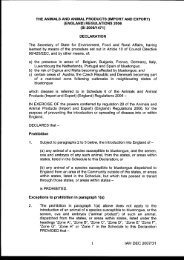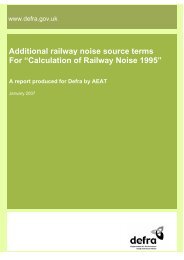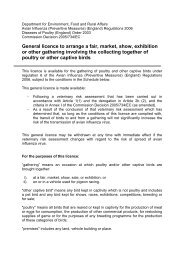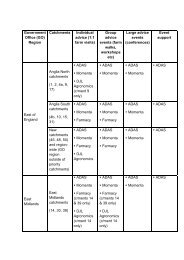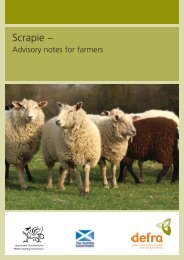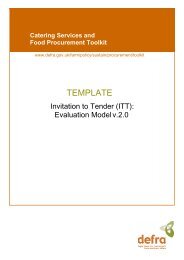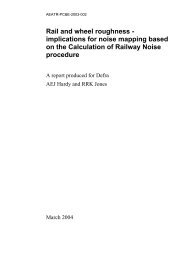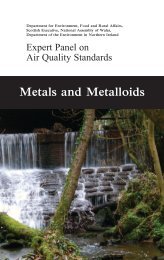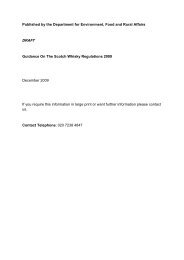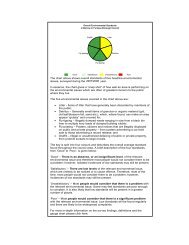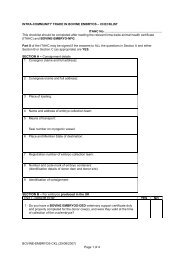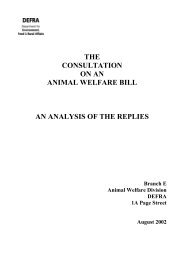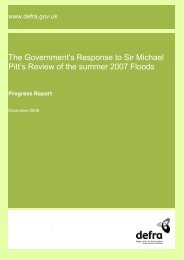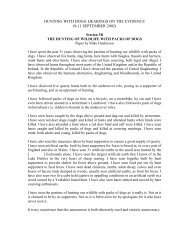Review of the Food-borne Zoonoses Research ... - ARCHIVE: Defra
Review of the Food-borne Zoonoses Research ... - ARCHIVE: Defra
Review of the Food-borne Zoonoses Research ... - ARCHIVE: Defra
You also want an ePaper? Increase the reach of your titles
YUMPU automatically turns print PDFs into web optimized ePapers that Google loves.
animal pathogen but is a human pathogen. The survey in 1999/2000 had indicated quite<br />
high prevalence <strong>of</strong> Yersinia enterocolitica in pigs (26%), less so in sheep (13%) and<br />
cattle (6%).The project has clarified which animal species were excreting isolates which<br />
are also pathogenic serotypes for humans. The research has developed a testing facility<br />
for Yersinia enterocolitica and contributed to <strong>the</strong> evidence base.<br />
The most important output has been <strong>the</strong> suggestion that more <strong>of</strong> <strong>the</strong> Yersinia<br />
enterocolitica strains present in livestock have <strong>the</strong> potential to pose a threat to human<br />
public health than was previously thought. The identification <strong>of</strong> <strong>the</strong> potential virulence <strong>of</strong><br />
BT1a strains is important as <strong>the</strong>se strains colonise a significant proportion <strong>of</strong> livestock.<br />
The study has generated a number <strong>of</strong> valuable publications, which advance knowledge<br />
in <strong>the</strong> subject area.<br />
Fur<strong>the</strong>r research is not currently required in <strong>the</strong> absence <strong>of</strong> clear direction from<br />
medical/public health authorities that this is a sufficiently important area that merits<br />
additional work in animals. It would be more appropriate for FSA or DH to fund fur<strong>the</strong>r<br />
work on understanding <strong>the</strong> pathogenicity for humans.<br />
68



